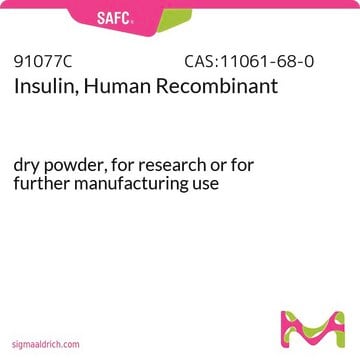SML2148
Sulfo-N-succinimidyl Oleate sodium
≥95% (HPLC)
Synonym(s):
(Z)-1-(oleoyloxy)-2,5-dioxopyrrolidine-3-sulfonic acid, sodium salt, (Z)-2,5-Dioxo-1-[(1-oxo-9-octadecenyl)oxy]-3-pyrrolidinesulfonic acid, sodium salt, 2,5-Dioxo-1-[[(9Z)-1-oxo-9-octadecenyl]oxy]-3-pyrrolidinesulfonic acid, sodium salt, SSO sodium salt, Sulfosuccinimidyl oleate sodium
About This Item
Recommended Products
Assay
≥95% (HPLC)
form
powder
storage condition
desiccated
under inert gas
color
white to beige
solubility
DMSO: 2 mg/mL, clear (warmed)
storage temp.
−20°C
SMILES string
CCCCCCCC/C=C\CCCCCCCC(ON1C(C(CC1=O)S([O-])(=O)=O)=O)=O.[Na+]
InChI
1S/C22H37NO7S.Na/c1-2-3-4-5-6-7-8-9-10-11-12-13-14-15-16-17-21(25)30-23-20(24)18-19(22(23)26)31(27,28)29;/h9-10,19H,2-8,11-18H2,1H3,(H,27,28,29);
InChI key
IENDXPSKPJDQKO-UHFFFAOYSA-N
Application
Biochem/physiol Actions
Storage Class Code
11 - Combustible Solids
WGK
WGK 3
Flash Point(F)
Not applicable
Flash Point(C)
Not applicable
Certificates of Analysis (COA)
Search for Certificates of Analysis (COA) by entering the products Lot/Batch Number. Lot and Batch Numbers can be found on a product’s label following the words ‘Lot’ or ‘Batch’.
Already Own This Product?
Find documentation for the products that you have recently purchased in the Document Library.
Customers Also Viewed
Our team of scientists has experience in all areas of research including Life Science, Material Science, Chemical Synthesis, Chromatography, Analytical and many others.
Contact Technical Service













